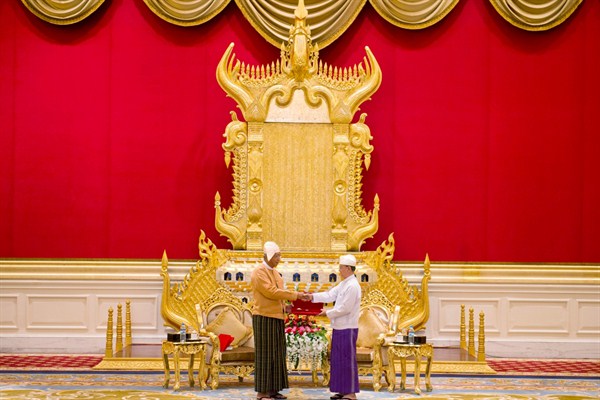On April 1, a new civilian government in Myanmar, headed by the long-time opposition National League for Democracy (NLD), assumed power after more than a half-century of military rule. The NLD’s victory in last year’s elections was touted as an historic feat, and the party has signaled that it will undertake significant political, economic and social changes in the coming years. But it is likely to face major challenges as it seeks to implement them, especially from an army that is still a potent political force.
Since coming to power following an opening under the ruling junta in 2011, the outgoing government of President Thein Sein had already begun to make political inroads in several areas. While the 2008 military-drafted constitution—which currently bars democracy icon Aung San Suu Kyi from the presidency because her two children are British citizens—remained unchanged, Thein Sein’s administration did try to make other progress, including launching cease-fire talks with several ethnic insurgencies to end decades of civil war. Suu Kyi, who vowed to be “above the president” anyway if her party won last year, is now set to wield that power, thanks to a law proposed by the NLD-controlled parliament to create a new post for her similar to prime minister: state counselor.
The NLD government has indicated that it would try to build on Thein Sein’s progress, most notably the peace process with ethnic rebels. In his brief inaugural address in parliament last week, Myanmar’s new president, U Htin Kyaw, mentioned four priorities that the new government would focus on—three of which were avowedly political: national reconciliation, internal peace and pursuing a constitution toward a federal union. The other was improving the living standards of the people. Early NLD moves, such as the creation of an Ethnic Ministry, also indicate the importance the party places on the peace process and national reconciliation. Interestingly, Htin Kyaw also stressed in his inaugural address that he would seek to amend the country’s constitution, a lightning-rod issue for the military, although he did counsel patience.

